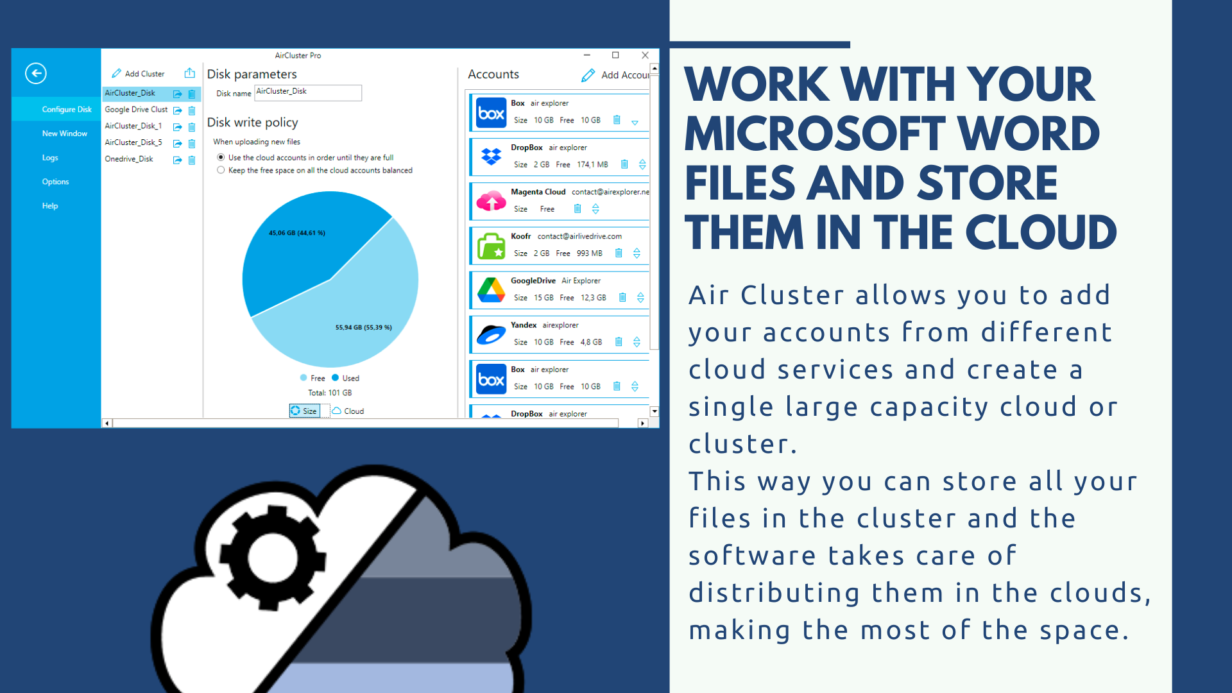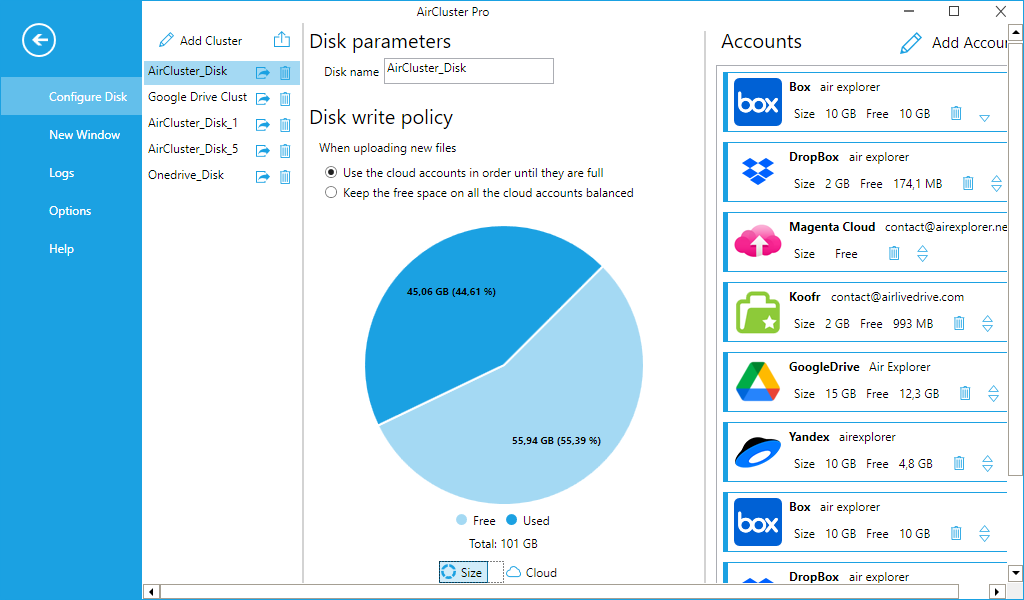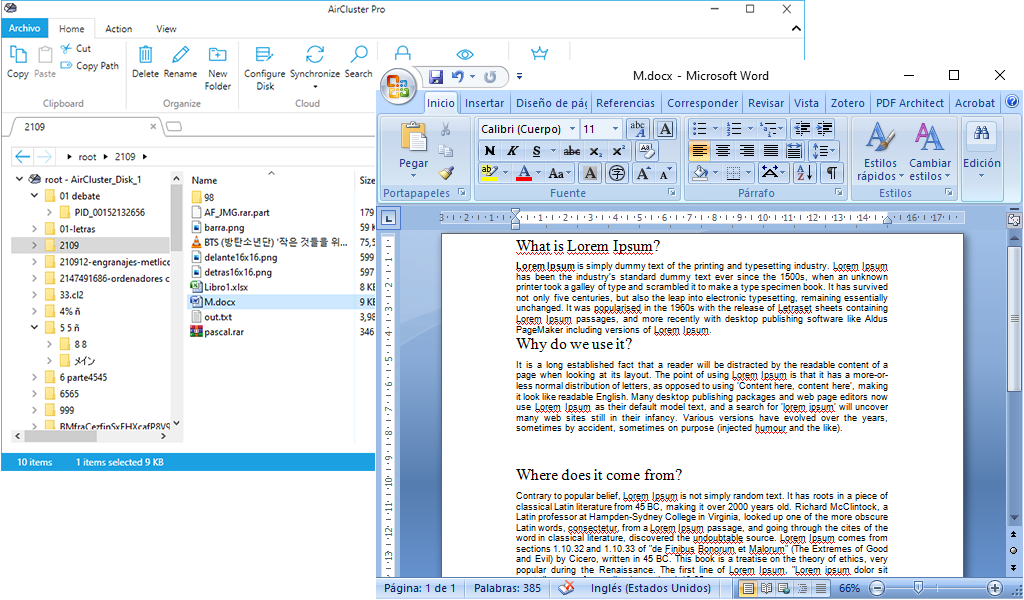
Work with your Microsoft Word files and store them in the cloud
Air Cluster allows you to add your accounts from different cloud services and create a single large capacity cloud or cluster. This way you can store all your files in the cluster and the software takes care of distributing them in the clouds, making the most of the space.

Some advantages of using Air Cluster are:
-Get a cloud with more space.
-Manage your files from a single, easy-to-use interface.
-Synchronize your folders between the cluster and your computer or between different clusters.
-Back up your files in the cluster.
-Edit your files in the cloud with Office or other software and save them directly.

To work and save Word files directly in the cloud with Air Cluster you don’t have to do anything special. After creating your cluster and adding as many cloud accounts as you want, find the file you want to work with, open it, edit it and click save. The document will be saved directly to the cloud, without duplicating files or losing data.

You can check more information about more features here:
-Manage your files in a cloud cluster
-Import and export clusters
-Disk write policy in the cloud clusters



No Comments